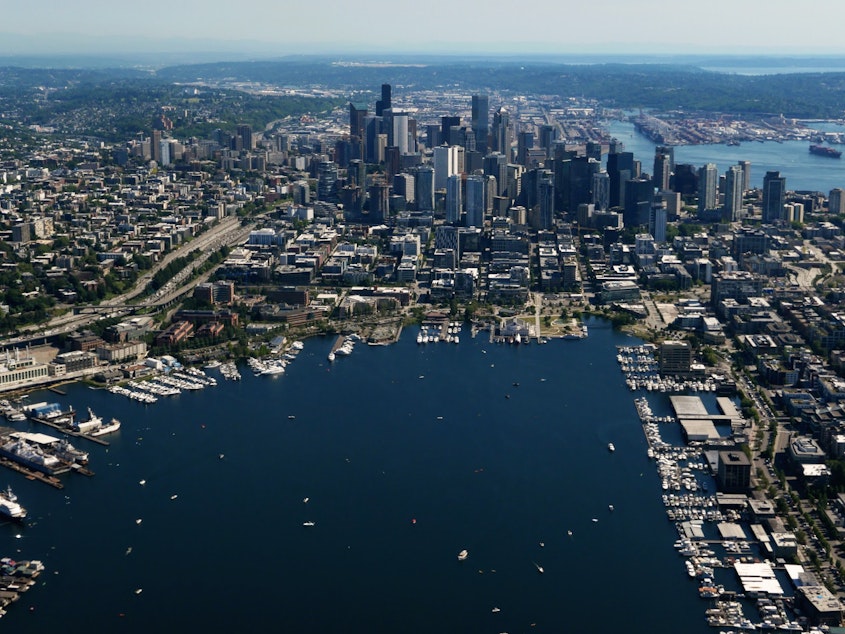Near term: Seattle is in the black. Long term, well...

Top officials at the city of Seattle are trying to plan for the city’s economic future. But, with so many big trends creating so much uncertainty, predicting that future is no easy task.
Here’s one example: When the Federal Reserve raised interest rates, homes loans became more expensive, which meant less housing construction, which meant the city gets less money from taxes on real estate transactions.
But the city’s top economic forecaster, Ben Noble, says the interest rate hike is helping slay an even bigger dragon — inflation.
“A number of our revenue streams — property tax being the most obvious example — don’t keep up with inflation. Property tax only grows by 1%, and in a higher inflationary environment, that means our overall growth in revenues aren’t going to keep pace.”
In the short term, Seattle appears to be on the path to a balanced budget for this year and maybe next. That's because it's bringing in more tax money than expected, at least relative to dour predictions Noble's office published earlier this spring.
But by 2025, the picture looks more bleak, with several trends pushing Seattle's long-term tax revenue prospects in the wrong direction.
Sponsored
There's a national mood of uncertainty stemming from the failure of some small regional banks, the war in Ukraine, and the national debt ceiling standoff. These trends inspire companies to act more conservatively, so that they're less likely to hire people.
In Seattle, Noble expects stagnant job growth over the next several years. This would have an impact on the city's payroll tax, which is currently beating expectations but could take a downward turn if the environment of economic uncertainty continues.
That's in part because the payroll tax is impacted by stock prices, Noble says. Many companies compensate their employees with stocks. So when stocks decline, more of those employees fall under the income threshold for which their employers must pay a tax.
Everywhere you turn, there's another shrinking source of revenue.
"Like our parking tax," says City Councilmember Teresa Mosqueda, who chairs the finance committee. Fewer people are parking their cars in downtown garages, "which ultimately might be good," she says.
Sponsored
"Maybe more people are taking the bus and light rail," Mosqueda says. "Perhaps we can continue with this hybrid model of work from home. But we need to adjust for declining revenue streams and invest in more sustainable revenue sources going forward."
Mayor Bruce Harrell has appointed a task force to look at alternative sources of revenue for the city.




